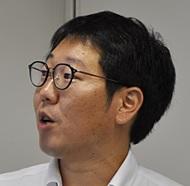Information Collection and Evacuation Intention in Earthquakes of Inbound Tourists in Japan
- Colloquium
- Tourism
- Safety, Security, Disaster Prevention, Environment
The 132nd Transport Policy Colloquium
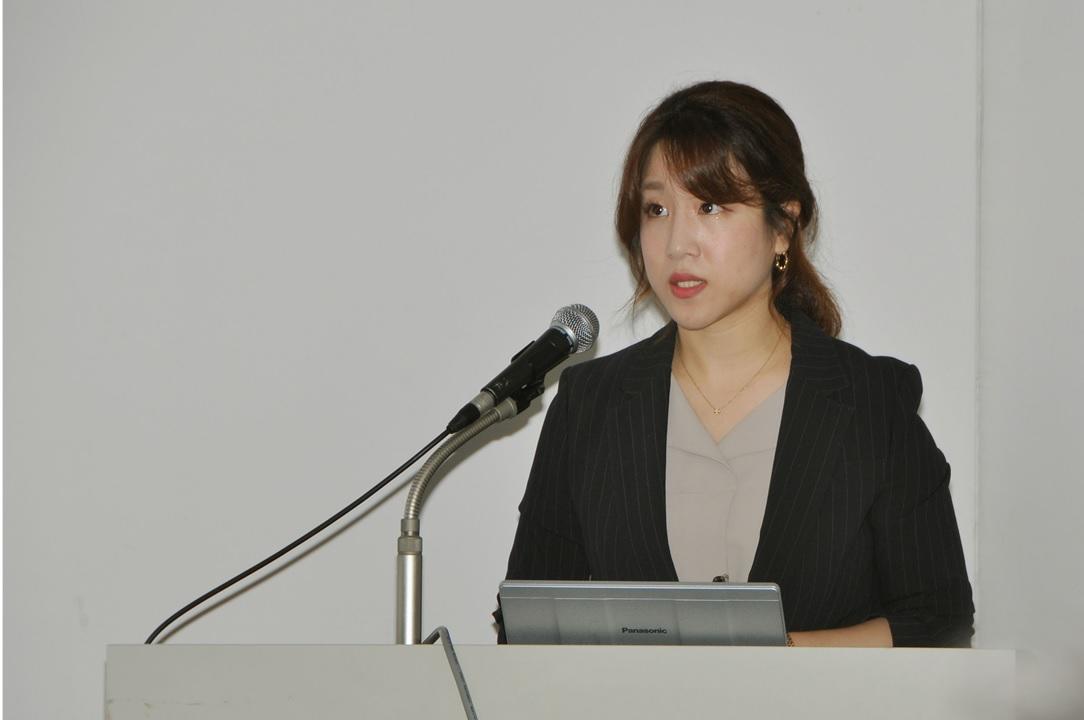

| Date / Time | Wed, Sep 18,2019 16:00~18:00 (Open 15:00) |
|---|---|
| Venue | Japan Transport and Tourist Reserch Institute (Tokyo) |
| Theme | Information Collection and Evacuation Intention in Earthquakes of Inbound Tourists in Japan |
| Lecturer | Sunkyung CHOI Research Fellow, Japan Transport and Tourism Research Institute (JTTRI) |
| Commentator | Makoto Fujiu Associate Professor, Faculty of Geosciences and Civil Engineering, Institute of Science and Engineering, Kanazawa University |
Event Summary
Tourism is positioned as an important national policy, and the number of inbound tourists continues to increase rapidly. However, in Japan, where there are many disasters such as earthquakes, storms and floods, it is only recently that we have begun to prepare for disaster response to foreign visitors. Particularly, problems related to information collection and delay in evacuation start have been pointed out from past disaster cases. The purpose of this study is to clarify the characteristics of information gathering and evacuation behavior tendency of foreign tourists in case of earthquake.By interviewing the information sender and analyzing the information needs of foreign tourists during the Great East Japan Earthquake, and clarifying the relationship between the tendency of evacuation behavior of foreign tourists and their experience, knowledge, and risk perception, We obtained suggestions on more specific directions for disaster preventive measures for foreign tourists.
Program of the seminar is as the following
| Opening Remarks 1 |

Masafumi Shukuri |
|---|---|
| Opening Remarks 2 |
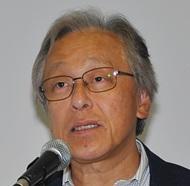
Hirotaka Yamauchi |
| Lecturer | |
| Commentator | |
| Question and answer |
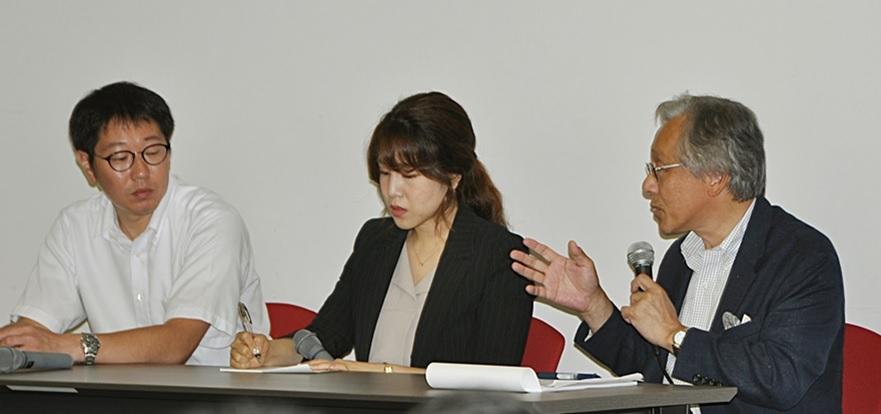
|
| Closing Remarks |

Yoshinobu Sato |
Outline of the seminar
In this colloquium, Dr. Choi explained that the provision of information to foreign tourists is focus on multilingualization in Japan, however, since there is weak cooperation among stakeholders involved in the tourism crisis management of foreign tourists visiting Japan, such as the Fire and Disaster Management Agency, the Japan Tourism Agency, and the regional tourism organizations, it is an issue to provide truly necessary information.
Furthermore, the following results were shown from the research results regarding the information gathering behavior of foreign tourists visiting Japan, information needs in case of disaster, disaster prevention awareness and evacuation behavior.
・Looking at the information gathering behavior of foreign tourists visiting Japan during the Great East Japan Earthquake,
①On the first day, many foreign tourists visiting Japan gather information to confirm the safety of their family and friends.
②Regarding the traffic operation information, the importance of the information was increased after the first week.
③Older tourists tended to ask for safety confirmation, and younger tourists tended to seek damage information.
⇒It was shown that different nationalities may have different information collection tendency and evacuation behavior.
・There are two types of evacuation behavior for foreign tourists.
①Act immediately after a disaster without thinking deeply.
②Act immediately by utilizing knowledge and experience ⇒ They can recognize risks and grasp the current situation
・Younger age groups may not pay enough attention to evacuation behavior
・Trends in evacuation behavior of foreign tourists are affected by their current location
①When traveling around sightseeing spots or using transportation: tourists need to take immediate actions (prone to panic)
②When staying at accommodations: There is relative time to make decisions, including information provided by accommodation staff
・Foreign tourists (Korean) have less experience of disasters and less knowledge about earthquakes than Japanese.
・Analysis of information sources and evacuation behavior in disaster scenarios
①The Internet and telephone as the source of information are frequently used everywhere
②Korean tend to follow the behaviors of their surroundings when they are in tourist areas and when using vehicles.
③In the case of a temporary power outage when using vehicles, both Japanese and Korean follow the behavior of the surroundings, so it is
further required for the information provider on the site to support multiple languages.
④Both Japanese and Koreans use the staff as information sources immediately after the disaster and one day after the disaster.
Based on the above, Dr. Choi showed that a comprehensive approach is required for tourism crisis management for foreign tourists visiting
Japan, and the importance of “tourism disaster information management” that combines “tourism planning”, “disaster management” and
“information provision” to centralize and share information management.
The commentator, Associate Professor Fujio, Kanazawa University, showed that the distribution of foreign tourists visiting Japan can be grasped by time as an actual evacuation situation for foreign tourists visiting Japan based on big data analysis using GPS. There are also foreign tourists visiting Japan who are at the level of “reading hiragana” and “reading simple kanji words”, so he suggested the necessity of “easy Japanese” to transmit information in Japanese.
During the Q & A session, there were lively discussions, including various opinions and questions. On the day of the Colloquium, there were more than 113 participants from research institutes such as universities, the Ministry of Land, Infrastructure, Transport and Tourism, railway companies, transportation companies, consultants, etc.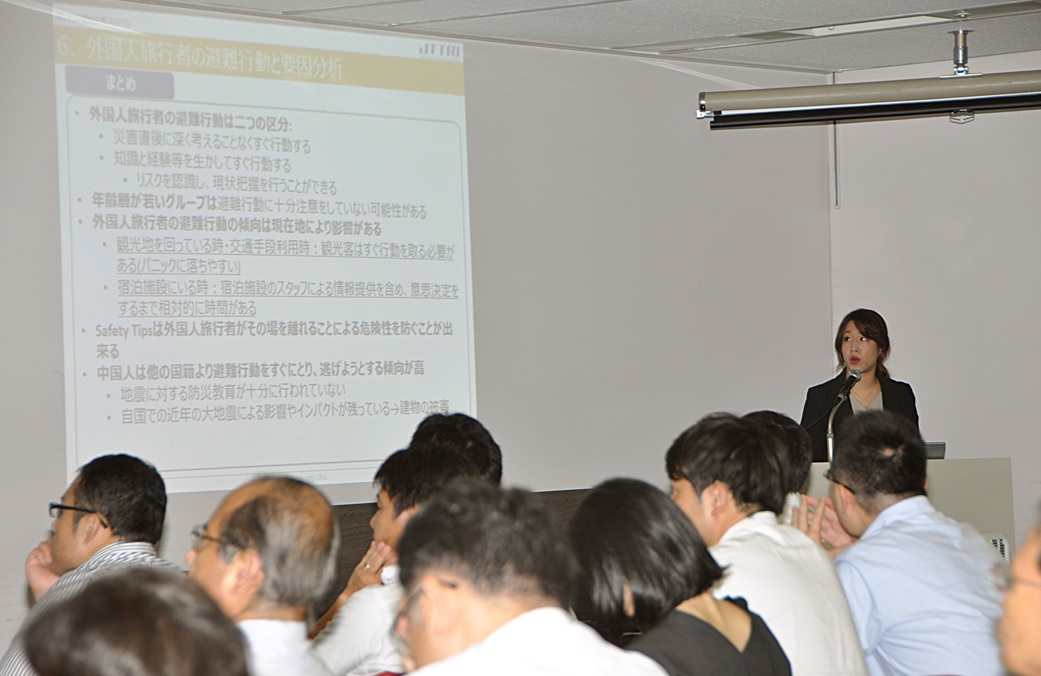
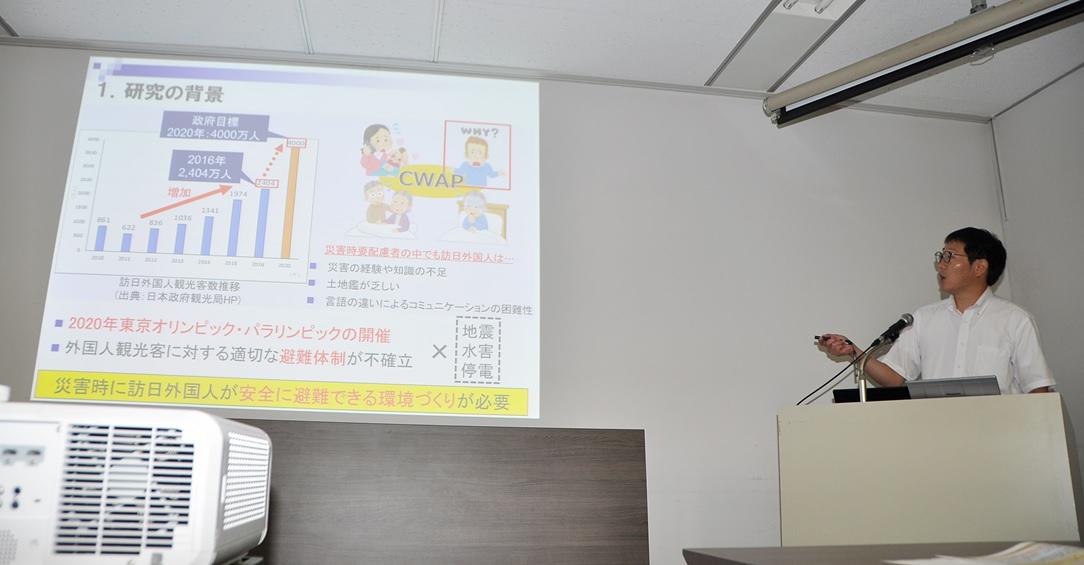
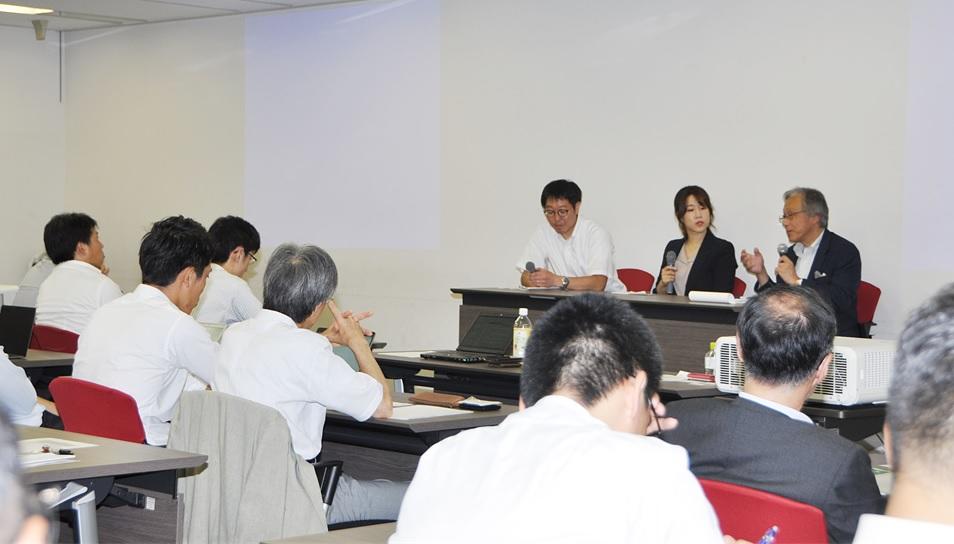
【Media Coverage】
An article on the 132nd Transport Policy Colloquium “Information Collection and Evacuation Intention in Earthquakes of Inbound Tourists in Japan” and a column “Bokuteki” were published in Kotsu Shimbun.




